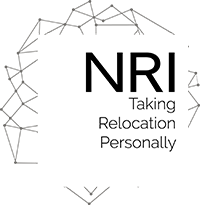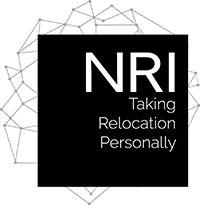To lead, is to influence others. Sometimes that means influencing others to follow a direction or a set of principles. Other times, leadership means influencing others to grow into leaders, themselves.
What is certain is that, regardless of intent, the best leaders are aware of the effect they have on others and manage themselves accordingly. Every day, there are multiple opportunities for each of us to demonstrate the best qualities of leadership by helping and strengthening others. In spite of that, most of us are so wrapped up in the large and small moments of our lives that we miss the opportunities for engagement with others.
Workplace psychologists have identified this ability to engage with others – the ability to “read” the effect we have when we engage with others – as emotional intelligence, a skill distinctly different from IQ.
Regardless of IQ or educational level, emotional intelligence can give you an edge when it comes to influencing and leading others. According to an article in the Harvard Business Review the things that we typically think of when we define “leadership” (intelligence, toughness, persistence, determination, vision) are necessary but insufficient for true leadership.
Instead, the article suggests, emotional intelligence may be the thing that separates outstanding performers at every level from the merely adequate.
In 1995, psychologist and author Daniel Goleman first coined the term “emotional intelligence” in his book of the same name. In the book, Goleman suggested that all truly good leaders possess a singular quality in common: a high degree of emotional intelligence.
The basic elements of emotional intelligence – empathy, self-awareness, self-regulation, social skill and motivation – may sound too “soft” for business. But Goleman found a direct correlation between a high degree of emotional intelligence and superior business results.
Best of all, Goleman discovered that, while some people are naturally blessed with a high degree of emotional intelligence, these are skills that can also be learned and developed.
This is heartening news in today’s work environment. Employees today are much more concerned about their workplace culture and they want to feel that they “fit in”. Today’s employees want and expect their leaders to be mindful of their needs, as well as the company’s needs in ways that didn’t exist fifty years ago.
Moreover, in today’s workplace, employees are taking the management of their careers into their own hands and actively seeking out jobs and workplaces that fuel their passion, inspires them, and develops their talent.
This shift in workplace expectations is forcing a shift in workplace culture. If you’ve been finding this seismic shift a little unsettling, here are some ways to incorporate the principles of emotional intelligence into your everyday practices:
Embrace Differences
In today’s world, people want to be authentic and to be appreciated for who they are. Employees appreciate those who appreciate them and managers who learn how to manage and leverage differences in people are the managers who assemble exceptional teams.
Instead of viewing differences as a set of challenges that need to be organized into a homogeneous whole, try viewing those differences as a part of a rich mosaic where each piece becomes an essential part of a harmonious picture.
Look for common ground between team members and assign unique talents and abilities to areas and situations where they can flourish.
Let People Know You Care
The popular saying, “People don’t care how much you know until they know how much you care” is no less true in business than it is in your personal life.
Genuine caring isn’t always easy to do but, as leaders, we need to find ways to lead from the head and the heart. This doesn’t mean that we need to be omnipresent in all aspects of an employee’s life. Most of the time, employees don’t need to be micromanaged to perform, but every employee does like to feel genuinely appreciated and recognized for their contributions.
Make the extra effort to say and show your appreciation and be consistent about it. Showing that you care about people is a surprisingly effective way to help you achieve your leadership goals and objectives.
Help People Make an Impact
People like to feel as if they are creating a positive impact for themselves and those around them. Employees who feel that they are significant in small and large ways bring a positive perspective to their work and are more likely to be creative and resilient in the face of challenges.
Take the time to mentor and / or sponsor employees who have earned the opportunity. Learn to listen – really listen – to your team and take proactive action to address their issues and concerns. Make their success, your responsibility. Develop a track record of following through and getting things done. And always, be true to your word.
Hold Yourself Accountable to the Same Standards
The best leaders hold themselves accountable to the same standards and rules that they ask of their employees.
Employees want to know that their leaders can be trusted and one of the best ways you can do this is by being more transparent. Instead of trying to maintain an appearance of infallibility (you’re not fooling anyone anyway), recognize your mistakes and admit to areas where you can improve. Be as sensitive to your own potential to improve as you are to your employees.
An emotionally intelligent leader is more sensitive to their employees and their team members, but that doesn’t make them a weaker or less effective leader. On the contrary, being emotionally intelligent allows leaders to see more clearly and opens their eyes to opportunities that they might otherwise miss.

